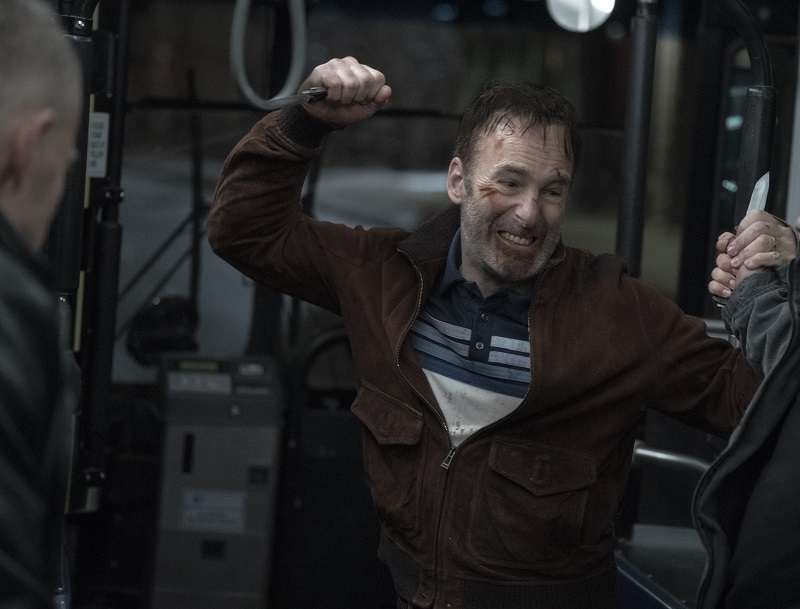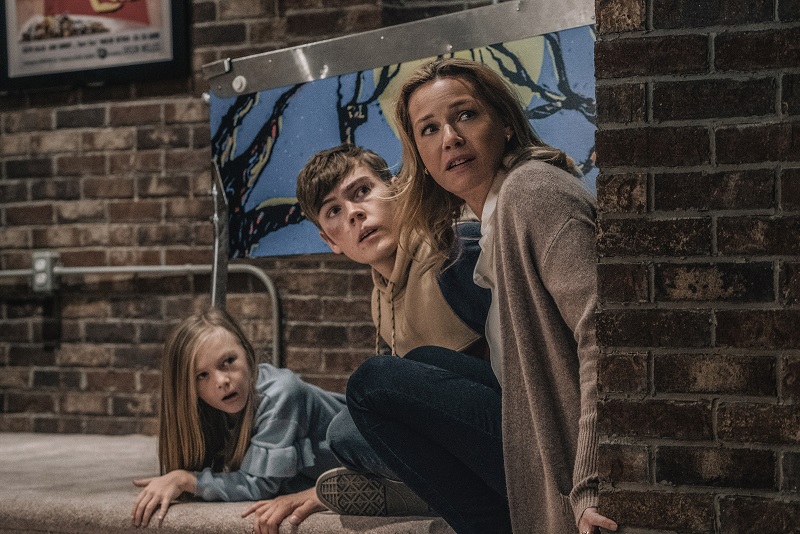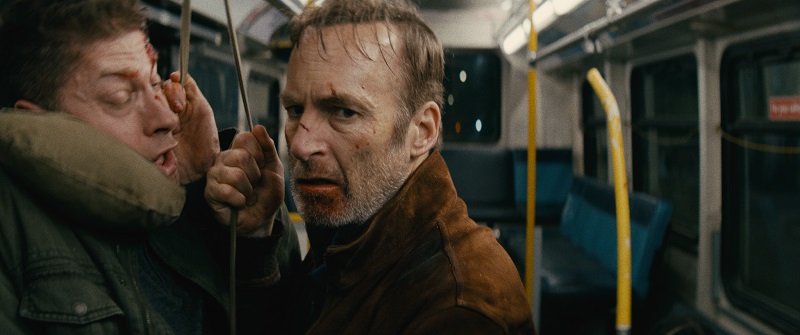Social media has been abuzz over the past few days due to a rare performance by Better Call Saul’s Bob Odenkirk. In Nobody, directed by the talented Ilya Naishuller, we see Odenkirk in what can only be described as rare form.

Full of action-packed fight sequences, jump-cuts, and, at times, too much close-up gore, Nobody follows family man, Hutch Mansell (Odenkirk) go from wimp to warrior.
Mansell is seemingly your typical, docile, suburban husband, father of two, who is almost pitied by his friends, wife, and even his kids. We wouldn’t go as far as to brand him as a wimp. But the audience can definitely get a feel for the strong emasculating overall attitude given to Hutch by his peers.
After Hutch fails to protect his family from armed home intruders, his family really starts to lose respect for him. But the question is: Why didn’t Hutch takeout the robbers when he had the chance? After all, they did have guns pointed at his family and he pretty much just froze.
However, after a few peculiar instances, it becomes evident that our average Joe isn’t so average and we start to see a shift from emasculation to vindication. This makes us begin to question his action during the attempted robbery.

Later, when Hutch is confronted with a group of drunk guys looking to start trouble on a bus and potentially harm an innocent girl, our dad of the year simply snaps.
Mansell is mild-mannered up until this point. But when he gets pushed too far, we get to see what this “nobody” is made of. The sequence that follows is a major brawl in a bus that can only be described as one of the most jaw-dropping, epic, innovative fight sequences in recent years. It’s so ethereal, it’s like something out of a comic book or a Marvel film. And we can thank the John Wick mastermind Derek Kolstad for giving life to these unforgettable fight scenes.
There’s just one issue: since the group of guys was drug dealers, that causes their boss to come after Hutch in an effort to retaliate. Yet to another fun surprise by Kolstad, it’s a karaoke singing Russian drug lord. How can you not love that, right?

We are also given a few surprise cameos, which always help boost the good time–especially after a year of quarantine. And especially when it’s film legend like Christopher Llyod, who is also seen in rare form here.
Speaking of post-lockdown relief, there’s something strangely satisfying about watching Odenkirk go full vigilante and beat bad guys to a bloody pulp. It may not sound appealing. But trust us, it’s beautiful on-screen.
Throughout the film, there’s an underlying theme of overboiling anger that audiences can both relate to and find relief from after an extremely frustrating year.
It’s not just the epic fight scenes or the subtlety of the badassery that is Odenkirk in this film. But the music and ultrasmooth dialogue that accompanies the epic fight scenes make it all the more fun. Almost like a symphony; extremely climatic and visually fantastic.
Also, major kudos to visionary geniuses Naishuller and Kolstad for the face-paced action sequences, spectacular stunts, and novel camera work. These guys know how to portray the anti-villain vigilante in a way that’s utterly unprecedented. No matter what line our protagonist crosses, we’re still on his side. By the end of the film, it becomes clear that Hutch is a lot of things. But a “nobody” he is not.
Nobody is out now, and it’s one of the most kick ass times you’ll have in a theater this year.
Grade: B
